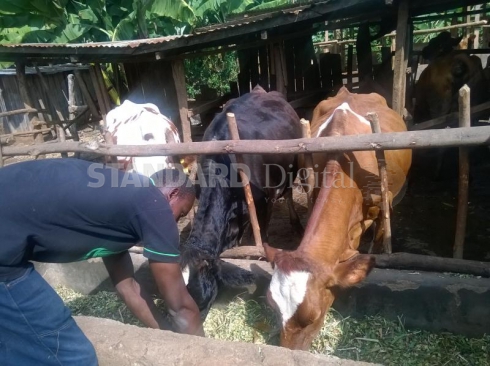×
The Standard e-Paper
Home To Bold Columnists

MERU: While fellow engineers are grappling with complex numbers involving structures, designs and all, one engineer is happy soiling his hands.
We caught up with Oscar Gitonga, 25, at his 12-acre farm in Mitunguu, Meru County.